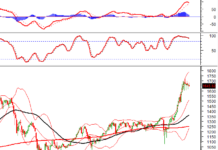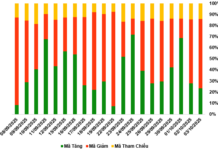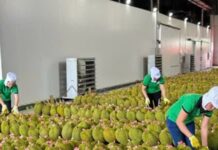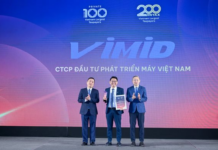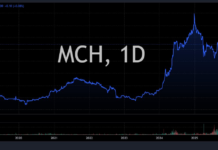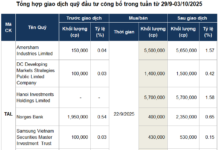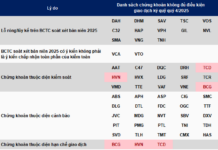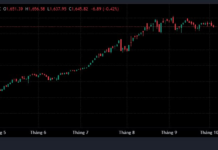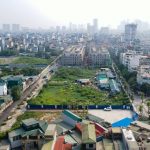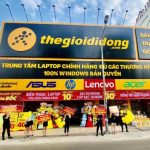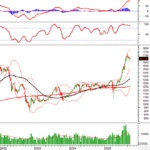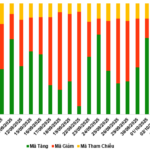
Taiwan, known for its global leadership in electronics and semiconductors, boasts over 70% market share in high-end chips. Taiwanese companies manufacture more than 80% of the world’s PCs and 90% of its servers.
In their latest analysis, Daphne Lee, Head of Corporate Banking, HSBC Taiwan, and Ahmed Yeganeh, Head of Corporate Banking, HSBC Vietnam, revealed that ASEAN-Taiwan trade reached USD 117 billion in 2023. The ASEAN economies accounted for 17.6% of Taiwan’s export value.
“Since the COVID-19 pandemic, the trading corridor between the two markets has reached new heights, largely due to the realignment of supply chains in the electronics sector,” said HSBC leaders.
Notably, Daphne Lee mentioned that Vietnam has emerged as a top investment destination for Taiwanese businesses. Specifically, data from Vietnam’s Ministry of Planning and Investment indicated that in 2023, investment from Taiwan to Vietnam quadrupled compared to 2022, reaching a milestone of USD 2.2 billion. Cumulatively, Taiwan is now Vietnam’s fourth-largest investor, with nearly 3,200 projects and a total registered capital of over USD 39.5 billion.
Taiwan has also become Vietnam’s fifth-largest trading partner, with annual bilateral trade reaching USD 25 billion. In the first six months of 2024 alone, there were a total of 39 new investment projects from Taiwan in Vietnam, focusing on electronics, garment, and electrical equipment sectors, with a total registered investment capital of USD 513.37 million, equivalent to 49% of Taiwan’s total FDI during this period.
“Looking ahead, Taiwan’s strength in technology undoubtedly makes it an indispensable link in the supply chain of the future,” asserted Daphne Lee.
According to the HSBC Taiwan leader, this opportunity is mutually beneficial. While Taiwanese companies can strengthen their trade links within ASEAN, international tech firms are increasingly viewing Taiwan as an attractive investment partner to realize large-scale technology innovations.
Vietnam’s Appeal
Ahmed Yeganeh, Head of Corporate Banking at HSBC Vietnam, attributed Vietnam’s appeal to Taiwanese investors to its strong fundamentals and cultural similarities, especially in the high-tech sector.
Vietnam’s semiconductor industry, for instance, is projected to reach a value of USD 20-30 billion by 2030, with ambitions to become a crucial link in the global semiconductor industry. To realize these aspirations, Vietnam has begun implementing policies focused on attracting high-quality FDI and enhancing skill development. Additionally, Vietnam boasts a young and skilled workforce, a strategic geographical location, a growing consumer market, and competitive operating costs.
These factors have made Vietnam the second-largest recipient of Taiwanese investment in the ASEAN region, only after Singapore. The Binh Duong branch of the Taiwan Commercial Association in Vietnam has over 600 members, the highest among similar associations worldwide. Reciprocally, more than 250,000 Vietnamese live and work in Taiwan.
Vietnam is already home to Taiwanese electronics giants such as Foxconn, Pegatron, Qisda, Compal, Quanta, and Wistron. More recently, Vietnam received a USD 250 million investment from Tripod Technology in the province of Ba Ria-Vung Tau.
According to Ahmed Yeganeh, Taiwanese companies have been stepping up their investments in more advanced electronic devices. Such investments will help Vietnam upgrade its workforce skills, increase production value, and attract more suppliers.
With a strategic shift from labor-intensive industries to those requiring skilled and highly educated workers, the Vietnamese government is offering incentives for high-tech sectors to attract more quality investments and deliver greater benefits to foreign investors, including those from Taiwan.
Due to the required level of specialization, intellectual property considerations, and capital costs, the most complex manufacturing activities – such as producing the most advanced semiconductors – are likely to remain in Taiwan in the near future.
“However, we can certainly expect to see an increasing number of advanced manufacturing activities moving to ASEAN and Vietnam in the coming decades as demand rises and the region’s supply chain continues to develop,” the HSBC expert emphasized.
The expert further added that Vietnam’s economy has witnessed a robust recovery, with GDP growth in Q2 2024 reaching 6.9%. This contributed to a GDP growth rate of 6.42% in the first half of 2024, the second-highest in the last five years.
“This outstanding result indicates that Vietnam is on track to achieve a 6.5% growth rate for the full year of 2024, potentially becoming the fastest-growing economy in ASEAN. These factors have increased Vietnam’s appeal in the eyes of international investors, including Taiwanese businesses,” concluded Ahmed Yeganeh.
The most extensive bribery case ever in Thanh Hoa: Numerous suspects prosecuted for “Giving and Receiving Bribes”
The Provincial Security Investigation Agency (PSIA) of Thanh Hoa province announced on January 31st that it has made the decision to initiate a prosecution against 23 individuals in connection with the offenses of “Accepting bribes” and “Giving bribes” as stipulated in Article 354(3) and Article 364(2) of the Criminal Code.
“Prosecution of government officials, land registration officers, and tax department employees in the largest bribery case ever”
The Thanh Hoa Police Investigative Agency has initiated legal proceedings against 23 individuals involved in the crimes of “Bribery” and “Receiving bribes”. This is the largest bribery case in terms of the number of suspects ever discovered and apprehended by the Thanh Hoa Police.

